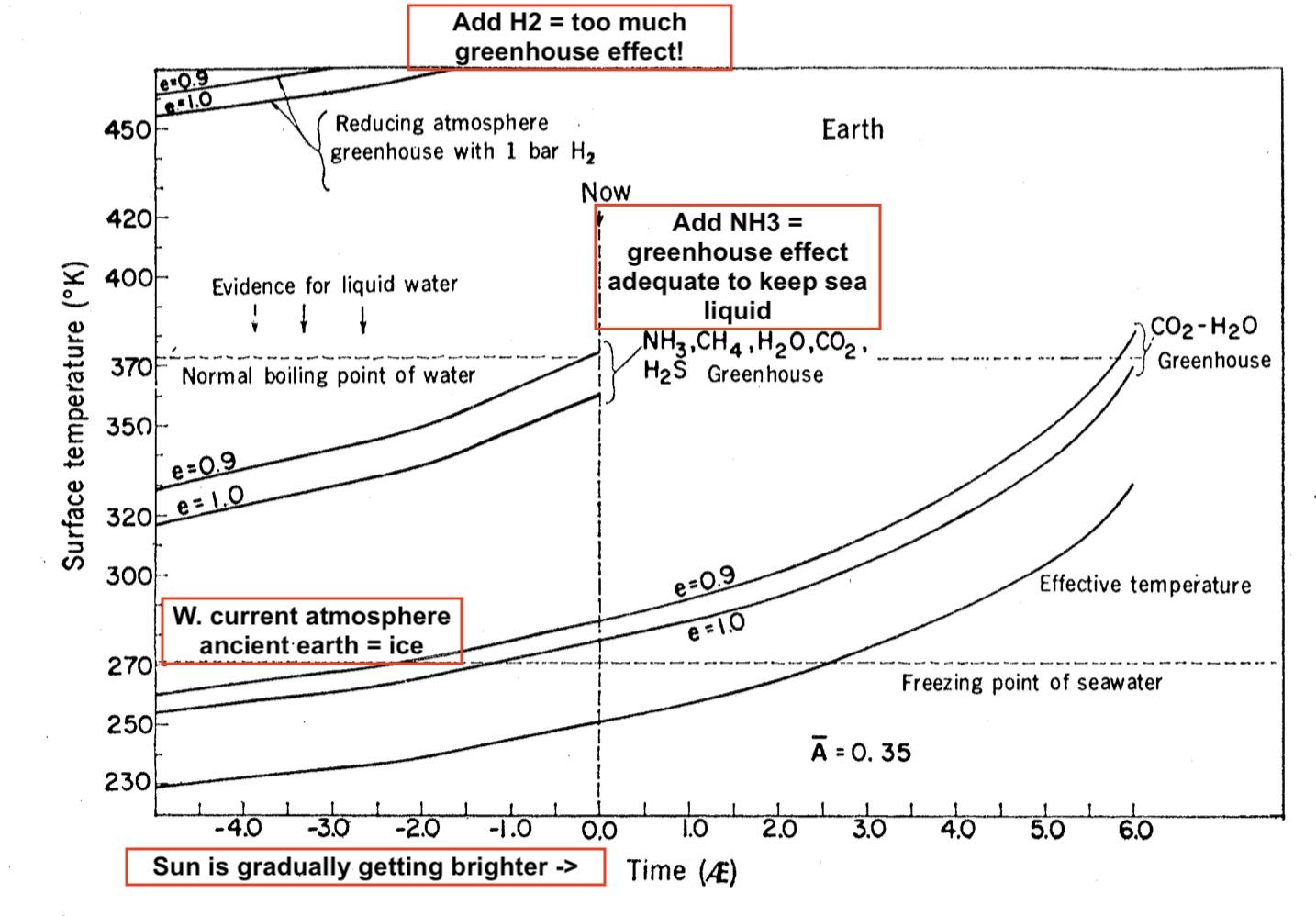I've been working on designing how an ammonia-ocean world might work and I've settled basically everything except one. I cannot for the life of me find any sources that actually provide a decent way to estimate how strong a greenhouse effect is with an alien atmosphere. The topic gets touched on here and there, but nothing I felt I could easily use. I've gathered that ammonia is a greenhouse gas, just one not long-lived on Earth. This brings up something important. Ammonia has a big vapor pressure. The partial pressure of ammonia even on a cold world would be quite significant. I'm also assuming a lot of methane for biological reasons. What sort of greenhouse effect will you get on a world with as much or more partial pressure of NH3/CH4 as Earth has nitrogen?
I don't need absolute precision, I just want to be sure I'm not giving ammonia worlds air mixes and orbits intended to leave them chilly enough for ammonia but would actually turn them into Venus. A rule a thumb, an estimate, would be awesome.

